
@undercoverhist.bsky.social
Historian of applied economics @CNRS @CrestUmr @Xdepeco.
How to get URL link on X (Twitter) App


 2/Our goal was to supplement those accounts of the “scientization” of central banking which are backed by quantitative analysis showing rise of PhD econ in decision (see @foxjust hbr.org/2014/02/how-ec… ) and advising positions (see @claveau_f & Dion epistemopratique.org/en/publication… )
2/Our goal was to supplement those accounts of the “scientization” of central banking which are backed by quantitative analysis showing rise of PhD econ in decision (see @foxjust hbr.org/2014/02/how-ec… ) and advising positions (see @claveau_f & Dion epistemopratique.org/en/publication… ) 

 2/ Attacks:
2/ Attacks: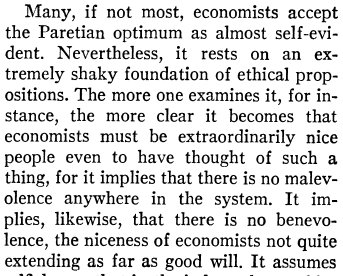
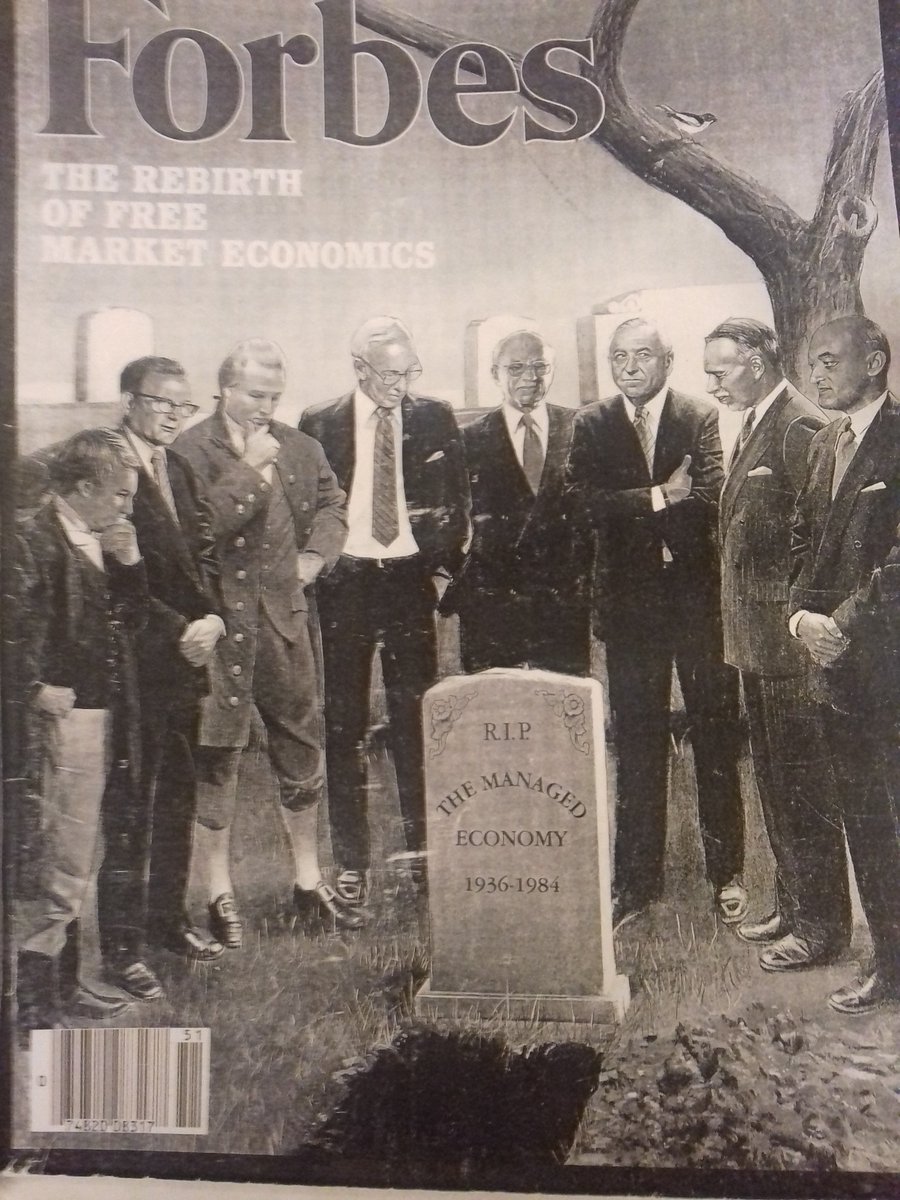
 (featuring Ricardo, Samuelson, Smith, Tobin, Friedman, Modigliani, Keynes, Schumpeter)
(featuring Ricardo, Samuelson, Smith, Tobin, Friedman, Modigliani, Keynes, Schumpeter)

 At the beginning there was his famous deprecatory remark on “women and soapbox operators longer on intuition than brain” in his 1948 textbook, which found its way into JEC hearings in 1973 (see full story in this thread
At the beginning there was his famous deprecatory remark on “women and soapbox operators longer on intuition than brain” in his 1948 textbook, which found its way into JEC hearings in 1973 (see full story in this thread https://twitter.com/Undercoverhist/status/977303031472705538)


 Then Samuelson goes on to write a road map of future Econ Nobels (in 1968, mentions Sen and Stigler elsewhere in the letter, though those who didn't got the prize are equally interesting)
Then Samuelson goes on to write a road map of future Econ Nobels (in 1968, mentions Sen and Stigler elsewhere in the letter, though those who didn't got the prize are equally interesting) 
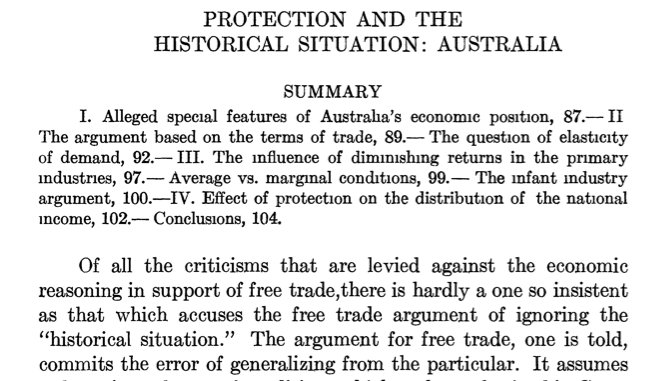
 2/ Anderson argued that free trade would maximize the real share of each productive factor, thus Australian national income. The underlying discussion of elasticities & returns of scales was, as often in those years, literary
2/ Anderson argued that free trade would maximize the real share of each productive factor, thus Australian national income. The underlying discussion of elasticities & returns of scales was, as often in those years, literary 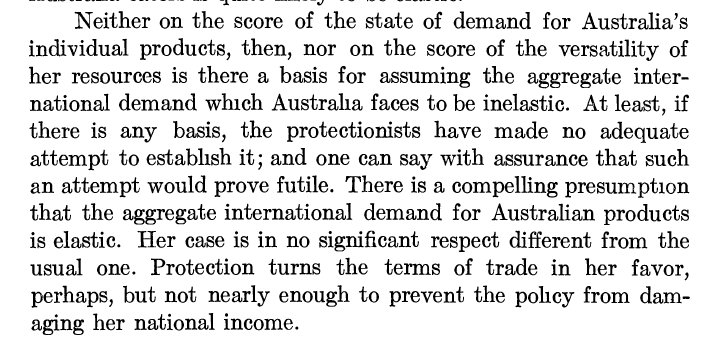

 2/ In 1967, “soapbox orders” were replaced by “cranks,” & in the 8th edition (1970), women were dropped. But that year, in a NYT article on the new edition, he commented that “the girls at Sweet Briar won’t be able to do [extra questions], but honor students at Princeton will.”
2/ In 1967, “soapbox orders” were replaced by “cranks,” & in the 8th edition (1970), women were dropped. But that year, in a NYT article on the new edition, he commented that “the girls at Sweet Briar won’t be able to do [extra questions], but honor students at Princeton will.” 

 Their redux econ/intellectual/political history of XIXt/XXth centuries is outlined in their introduction (radicalmarkets.com/wp-content/upl…)
Their redux econ/intellectual/political history of XIXt/XXth centuries is outlined in their introduction (radicalmarkets.com/wp-content/upl…) 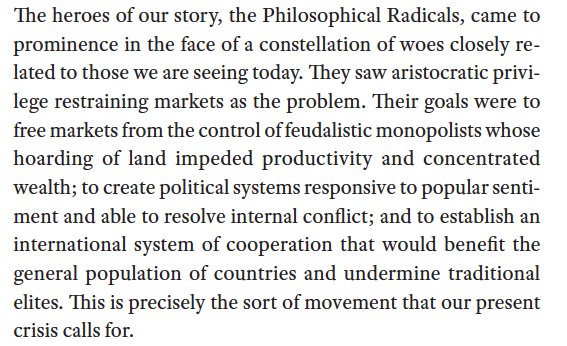
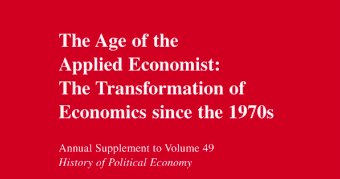
 Introductory paper sums up approach & case studies read.dukeupress.edu/hope/article/4… [Free]
Introductory paper sums up approach & case studies read.dukeupress.edu/hope/article/4… [Free] 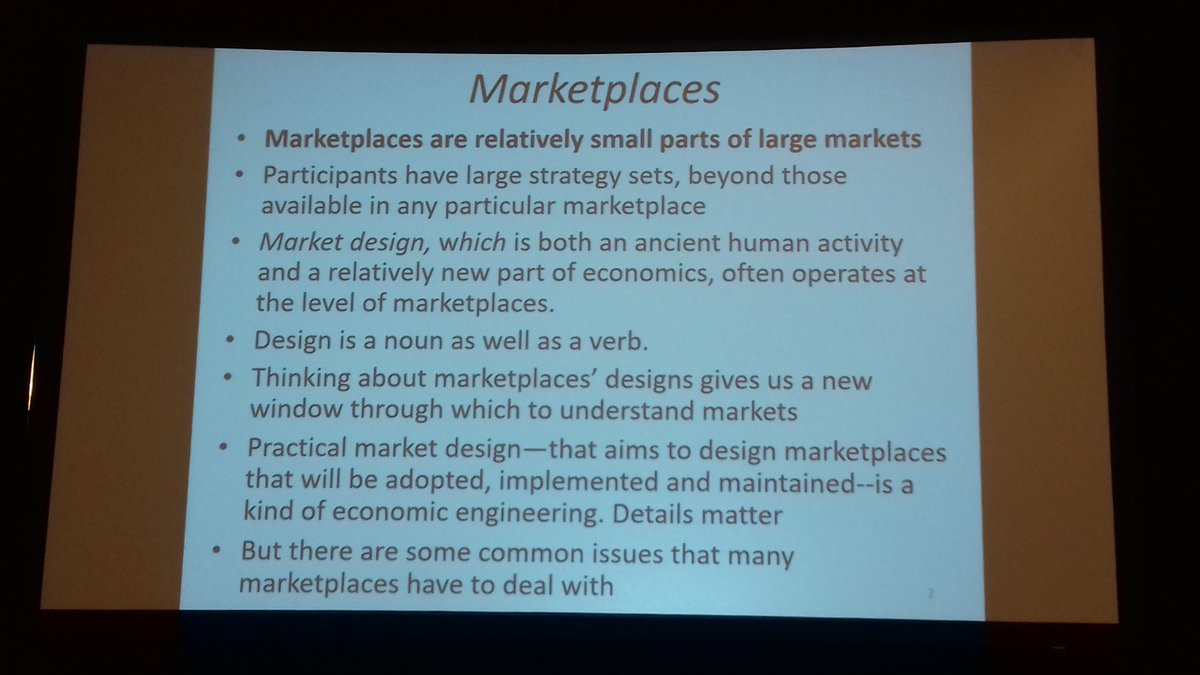 Mechanism design is what we do as theorists. Market design is what we do when we intervene in real markets to improve them. Practical market design part of economic engineering, which means details matter. Marketplace design ever better term than market design (more applied)
Mechanism design is what we do as theorists. Market design is what we do when we intervene in real markets to improve them. Practical market design part of economic engineering, which means details matter. Marketplace design ever better term than market design (more applied)